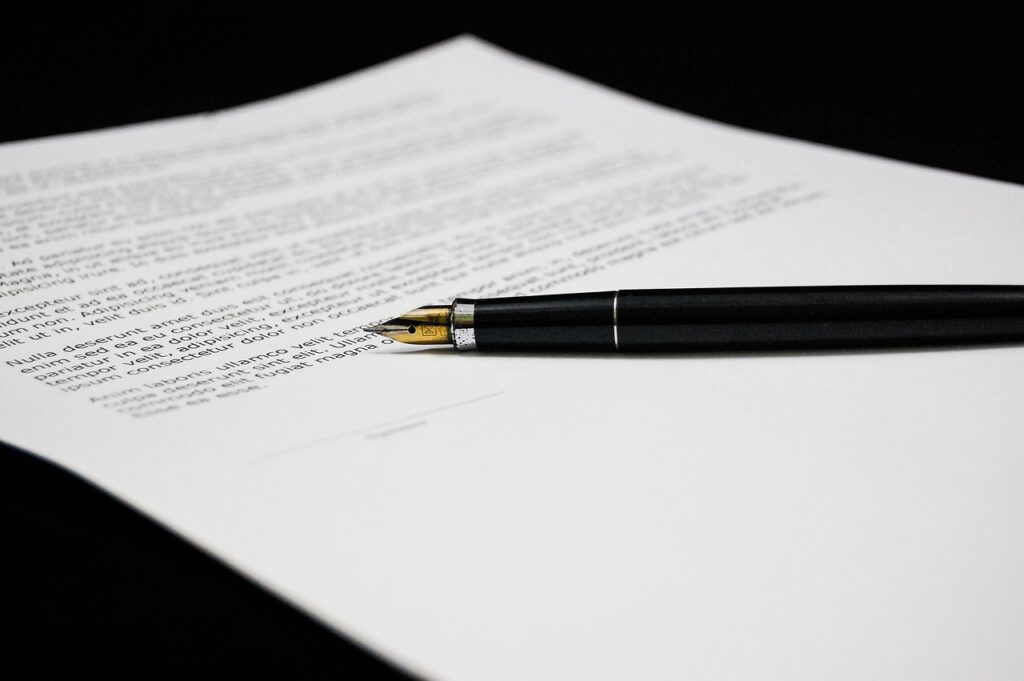You find a great property deal. The seller says, “It’s on Power of Attorney (PoA). Don’t worry, it’s the same as ownership.” That’s a red flag.
A Power of Attorney and a Sale Deed are two very different legal documents, and mixing them up could cost you your money—and your property.
Let’s understand what each one really means:
| Document | What It Does |
|---|---|
| Power of Attorney (PoA) | Gives someone the legal authority to act on behalf of another person—for specific tasks like signing documents, handling bank work, renting out property, or even selling it. |
| Sale Deed | A legal document that confirms the sale and transfer of ownership of a property from the seller to the buyer. Once registered, it proves legal title. |
A Power of Attorney does not transfer ownership. It only allows the holder to perform actions on the owner’s behalf. A Sale Deed, once registered, legally transfers the title from seller to buyer.
In 2011, the Supreme Court of India ruled in Suraj Lamp & Industries v. State of Haryana that property transactions through PoA are not valid sales. A buyer doesn’t get ownership through PoA unless it’s followed by a proper sale deed and registration.
Here’s why people misuse PoA:
- To avoid paying stamp duty and registration fees
- When the original owner is abroad or not present
- In cases of disputed or encroached land
But relying on PoA without a registered sale deed puts you at risk. You can’t mutate the property, sell it, or even claim it legally in court in case of a dispute.
To understand the importance of a proper sale deed, read What is a Sale Deed and Why It Matters in a Property Deal.
Also, if you’re buying inherited or joint family property, you must check that the PoA-holder has valid authority and that all legal heirs are accounted for. A general PoA doesn’t always include the right to sell property—that requires a specific PoA clearly mentioning the power to sell and register the sale.
If you’ve already bought property via PoA, make sure the sale is regularised by:
- Registering the Sale Deed
- Executing a Gift Deed if the parties are family
- Applying for mutation in revenue records
Before buying any such property, follow this checklist: How to Check if a Property is Legally Clear Before Buying.
Using PoA isn’t always wrong. It’s useful when:
- An NRI authorises someone to register property
- A developer needs authority to get approvals on behalf of landowners
- You’re selling on behalf of an elderly or sick relative with proper consent
But don’t confuse convenience with ownership.
If you absolutely must use a Power of Attorney (PoA) in a property deal, it’s critical to do it correctly and legally. A PoA can’t replace a Sale Deed, but it can help facilitate certain actions—if used transparently and registered properly.
Here’s how to use PoA the right way:
| Situation | What to Do |
|---|---|
| Owner is out of town or abroad | Execute a Special Power of Attorney, authorising a trusted person to sign the sale deed on their behalf. |
| Co-owners or family members selling jointly | Each person can issue a registered PoA to one of them to act on behalf of all. |
| Old or sick owner unable to travel | A family member can act on their behalf, but the PoA must be specific and legally valid. Medical certificates may be needed. |
Under Section 17 of the Registration Act, 1908, if the PoA relates to sale of immovable property, it must be registered. If issued from abroad, it must be notarised at the Indian Embassy or Consulate and then adjudicated in India under Section 18 of the Indian Stamp Act, 1899.
A registered PoA is valid evidence in legal matters. An unregistered PoA for sale purposes is not acceptable and will be rejected by the Sub-Registrar.
Using a PoA without registering a Sale Deed afterward has serious risks:
- You can’t mutate the property in your name
- You won’t get bank loans on the property
- Courts may consider it a “license to use” not ownership
If you’re buying property from someone who claims to be selling via PoA:
- Ask for the original registered PoA document
- Cross-verify with the owner (if alive or traceable)
- Insist on a registered sale deed, even if the PoA holder signs it on the owner’s behalf
If the property has changed hands multiple times on PoA basis, consider consulting a lawyer to regularise it legally.
To understand the next step after buying, read How to Register Property in India – Step-by-Step Guide.
FAQs
1. Can I sell a property through PoA?
Only if the PoA specifically authorises you to sell, and it’s properly registered.
2. Is PoA valid forever?
No. It usually ends on the death of the person who gave it or after the task is complete. Some expire on a fixed date.
3. Can I get a home loan on PoA property?
Banks often reject loans if ownership isn’t proven through a registered sale deed.
4. What’s better: General or Special PoA?
Special PoA is better for property—it limits misuse and clearly states the purpose.
5. Can NRIs use PoA to buy or sell property in India?
Yes. They must execute it abroad, notarise it, and get it stamped in India.



